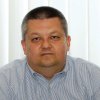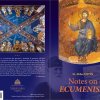Ivan Aksentijevich earned his Medical Doctor Degree from the University of Belgrade, Serbia in 1986. He moved to the United States with his wife Ivona in 1989. Between 1989 and 1996, he completed two post-doctoral fellowships at the National Institutes of Health in Bethesda, MD. He went on and did a residency in Internal Medicine at St Agnes Hospital in Baltimore, MD, and followed this with fellowships in both Hematology and Medical Oncology at Johns Hopkins University Hospital, Baltimore, MD. He is a senior partner and member of the Executive Committee with the Virginia Cancer Specialists, in Alexandria, VA. He holds the Chair of the Cancer Committee at Alexandria Hospital and is a primary investigator on several clinical trials. His main clinical interrests are in the field of hematologic malignancies.
Ivan Aksentijevich is board certified in Internal Medicine, Hematology and Medical Oncology. He has received several competitive awards, including a National Institute of Health Biotechnology Award, a National Cancer Institute Technology Transfer Award, an American Society of Clinical Oncology Merit Award, and two American College of Physicians Clinical Poster Awards. He was an invited guest speaker at many national and international cancer meetings and has published numerous original articles in peer reviewed journals.
In addition to his passion for medicine and dedication to his patients, Ivan is above all a family man who enjoys traveling with his wife and five children. He loves traveling and speaks fluent English, French and Serbian.
Ivan Aksentijevich founded SAMA in 2009. His need to give back to Serbia and its people originates from his love of his ancestral land and the people who have shaped him in what he is today.
From: SAMA






